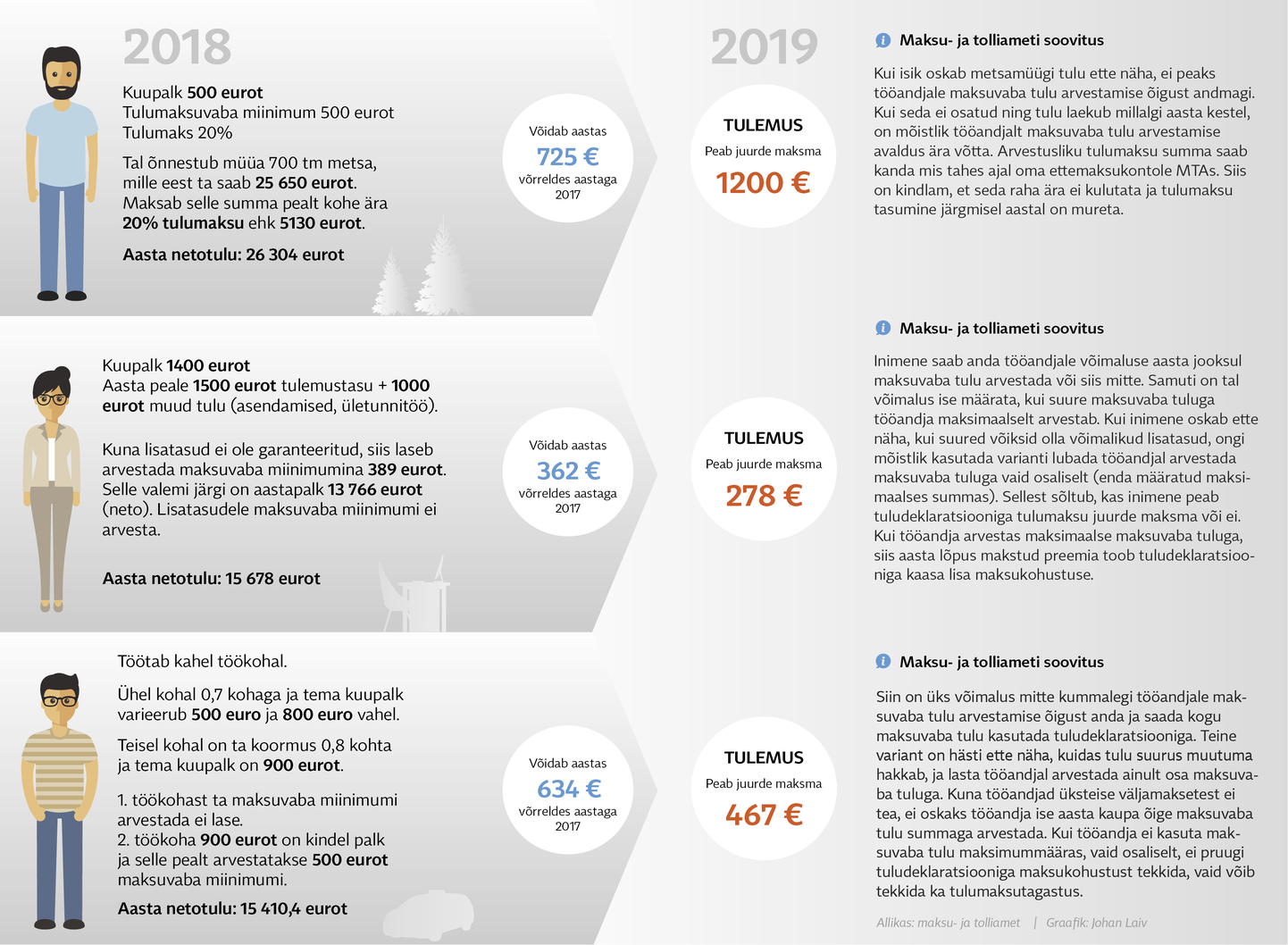The tax system to enter into force in 2018 is everything but simple. The only two elements the ordinary person still grasps are the recent 20 percent income tax rate, and the fact the current €180 minimum income exempt of tax will be hiked to €500.
From there, things take a turn for the complicated and become a challenge for tax board officials, accountants, and of course taxpayers themselves, used to the current system where logging into the e-tax system and pressing a few buttons is all it takes to file one's tax return.
And for good reason. «The law provides 500 rates of tax-free income a month, which comes to 6,000 a year. Income exempt from tax will fall by €1 for every €1.8 earned,» said head of the taxes department of the Tax and Customs Board (MTA) Evelyn Liivamägi.
What this means in other words is that Estonia will switch to a 6,000-rate tax system where all manner of distinctness in income will only complicate things further.
Effect of nonrecurring income
We picked three realistic situations an unskilled worked living in a rural area, a state officials making €1,200 a month, and a person working two jobs might find themselves in to see how their income and the taxes they pay would change in the new system.


